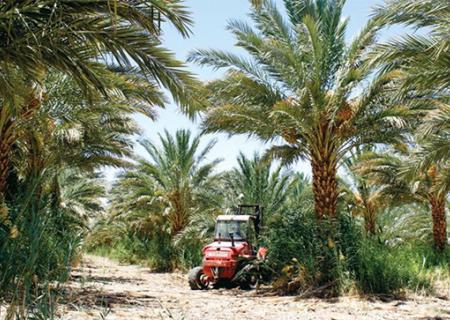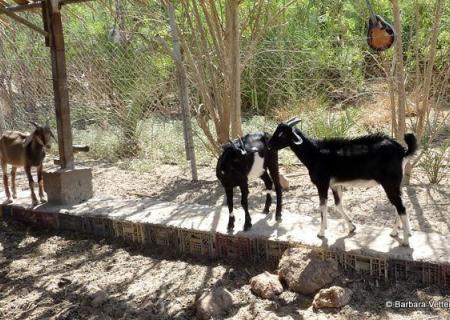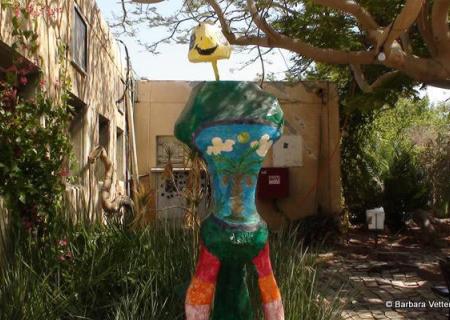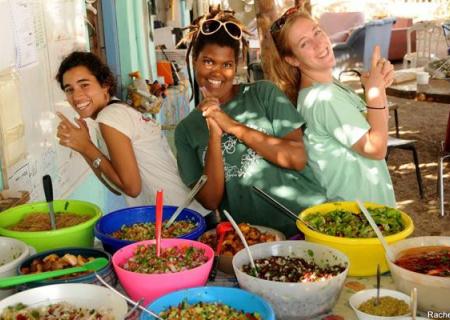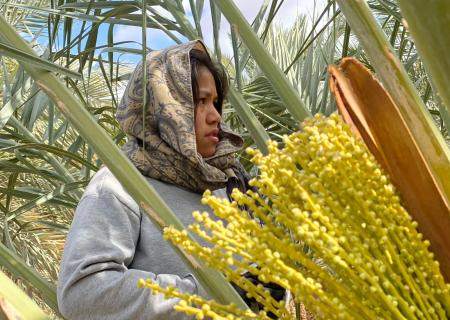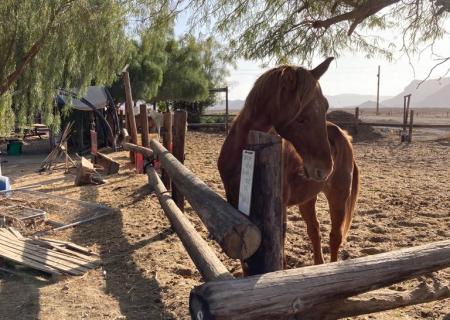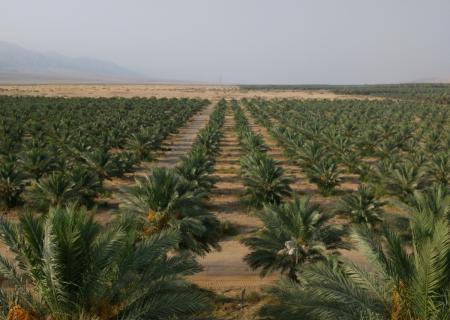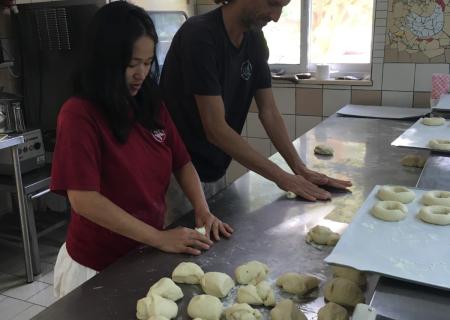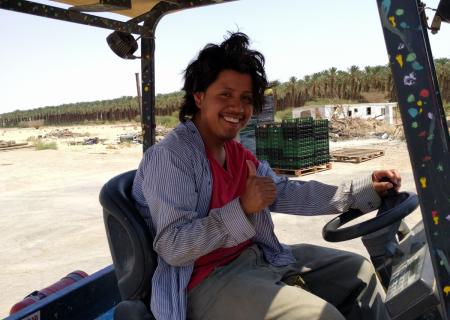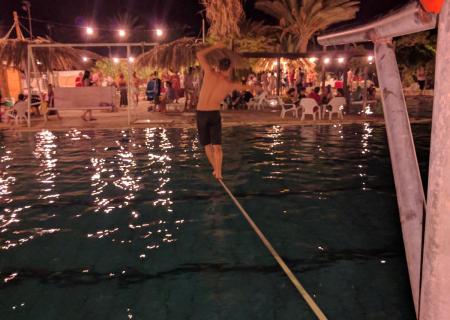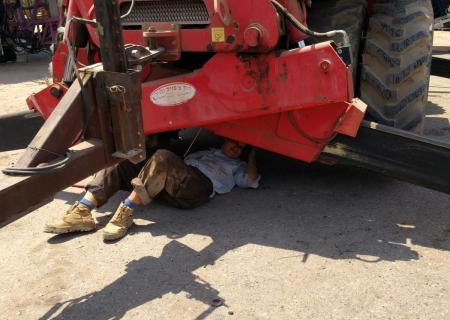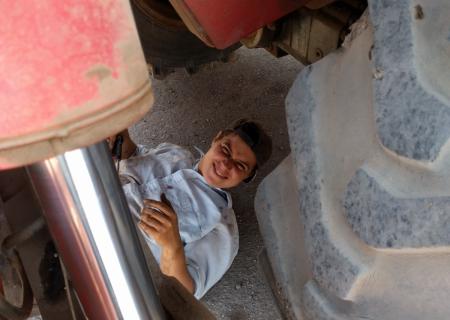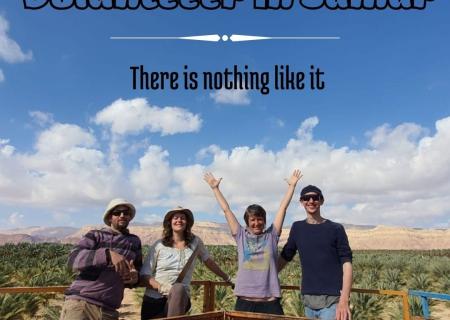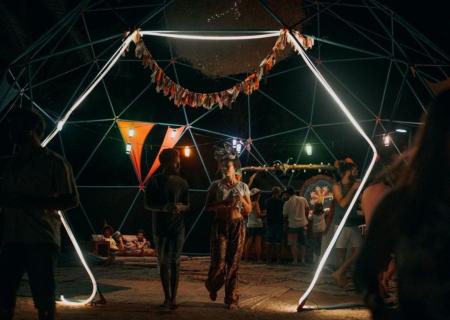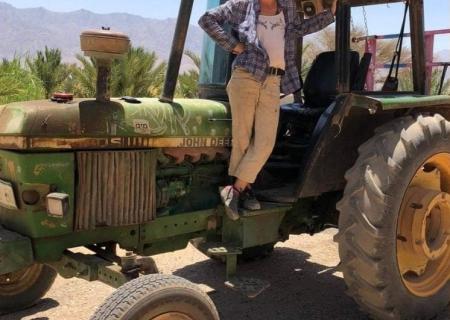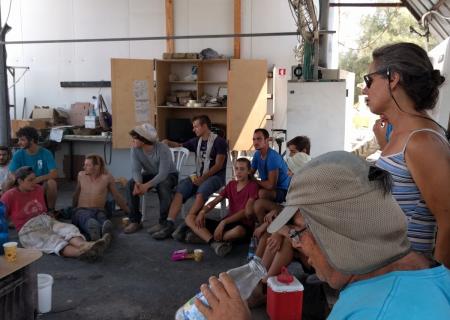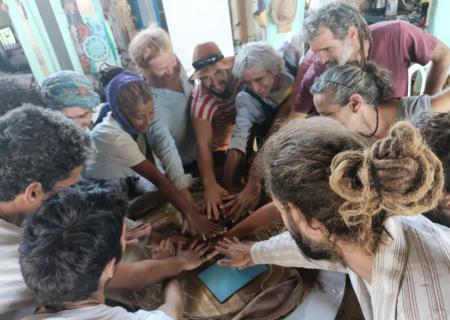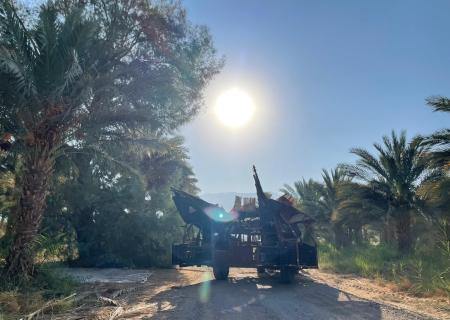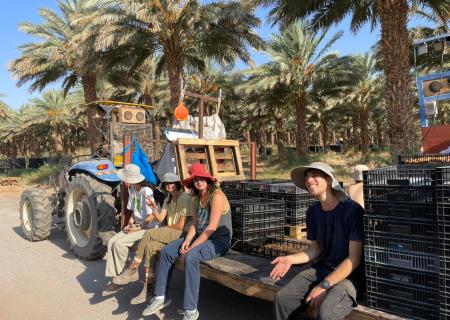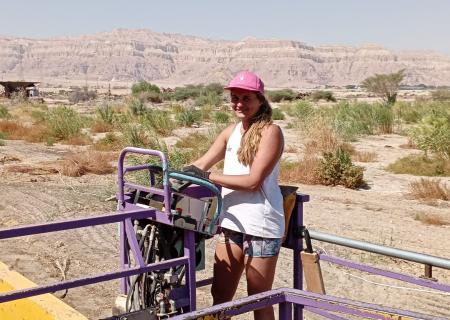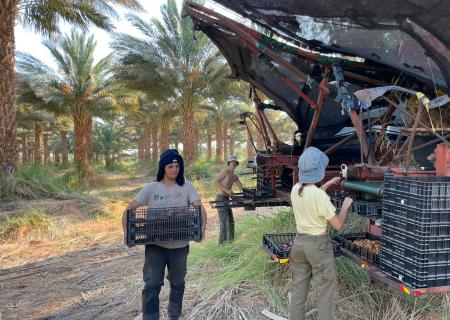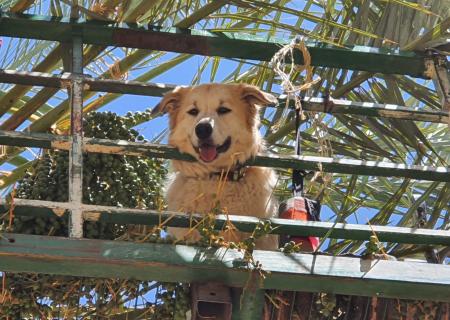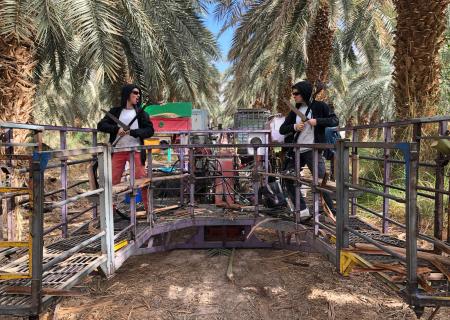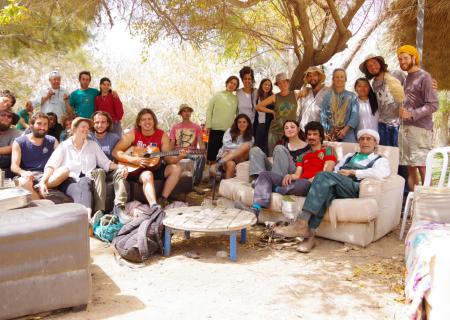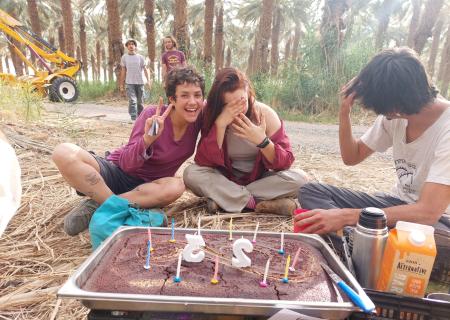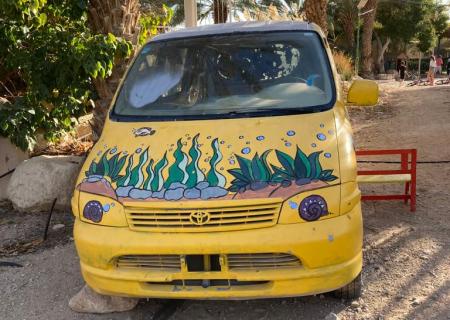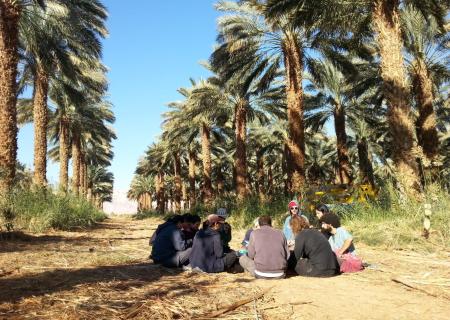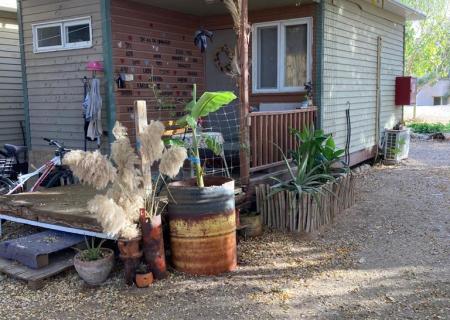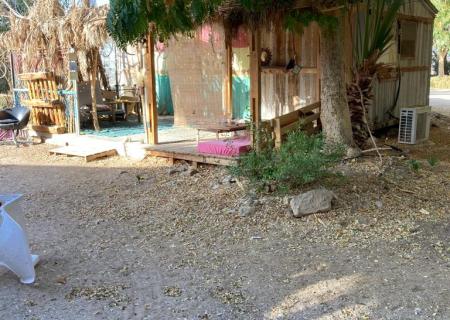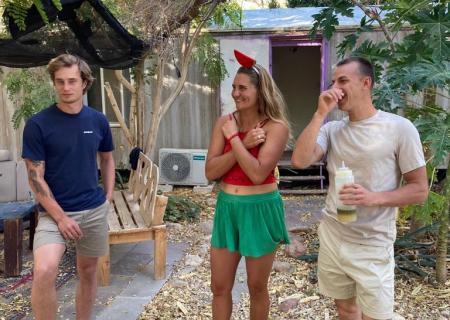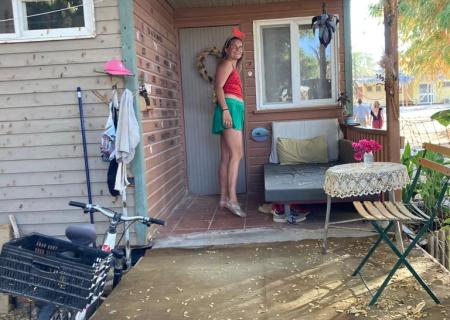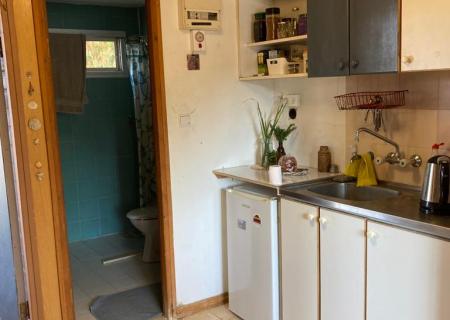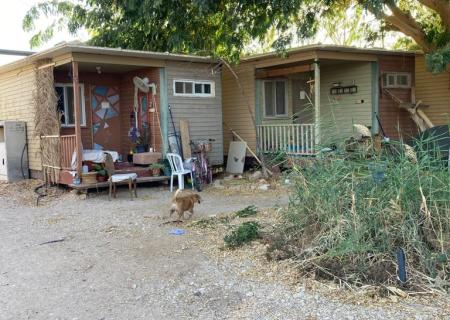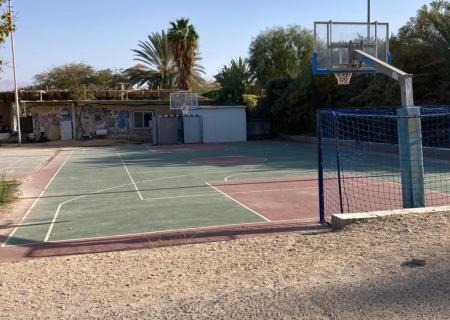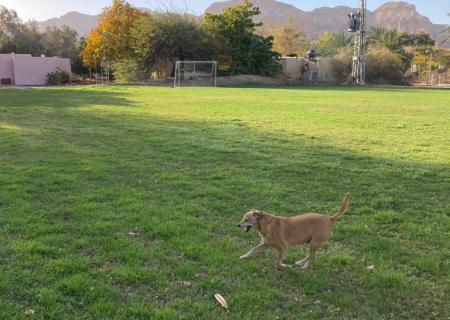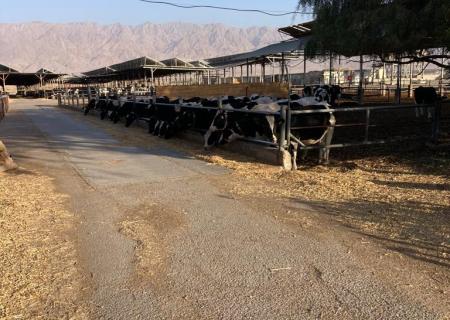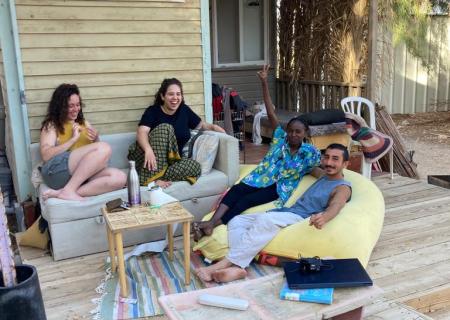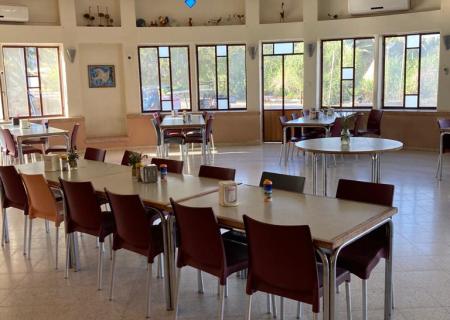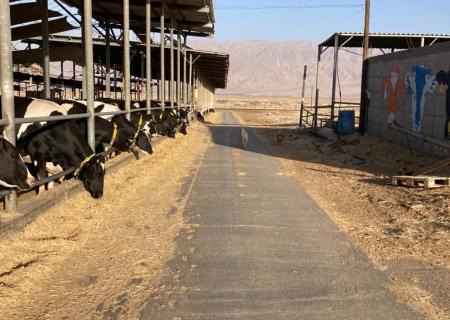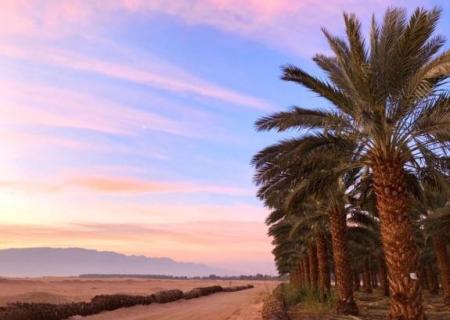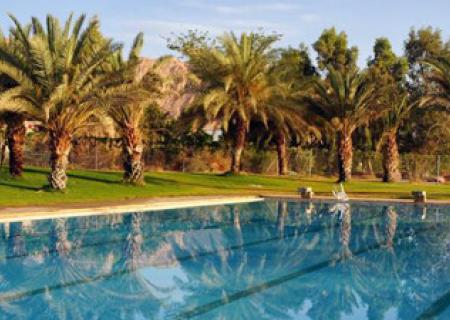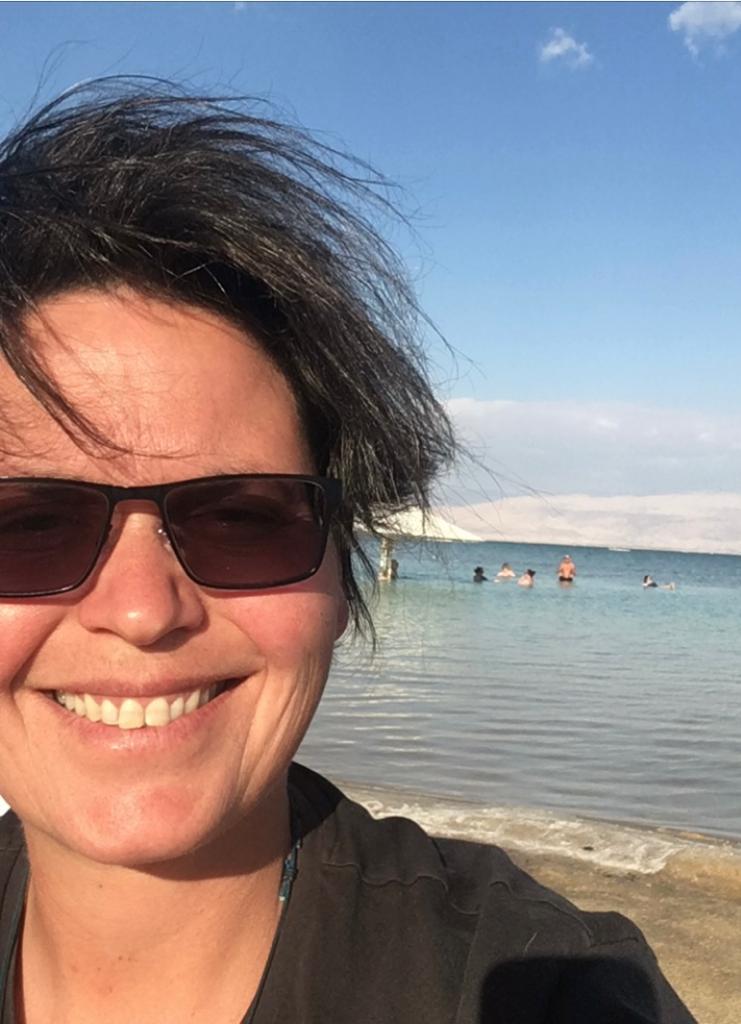
Kibbutz Samar is located in the Arava valley in the far south of Israel, about 37 kilometers north of Eilat. The Kibbutz was founded in 1976 by a group of young people who wanted to form a different kind of community, one that offered more independence and responsibility to its members. The name "Samar" represents the plant Juncus, in Hebrew. Samar is one of the few Kibbutzim that continues to maintain a lifestyle consistent with the original socialist ideals of the Kibbutz movement. Samar counts today around 250 people and 5 international volunteers.
The theory on which Samar's life is based is that people are not necessarily equal; we all have differing needs and abilities. Therefore, striving for a technical equality of budgets, living space, etc., is at best futile. All members of Samar have equal opportunities to fulfil their needs as they see fit. This is the chief philosophy of Samar, which has been called an anarchic kibbutz. Samar works to provide high standards of cooperation among its members, and also offers an unusual degree of autonomy for each individual. Samar is a friendly place. The kibbutz is small; everybody knows everybody else; social interactions of all kinds are easier and more common than in a big city.
In Samar you may visit a Tukul, which is an Ethiopian house that was built on Samar. Its main purpose is to preserve and pass on the tradition, hopefully that those who are not part of the Ethiopian community can also learn from it. The Tukul is made from wood, straw and mud. The house is divided into living spaces, a cooking area and a storage space.
In 2011 kibbutz Samar opened a new enterprise, providing mountain bike tours. Along with offering guides, accommodations and meals for hiking parties, they have built new bike paths under contract with the Israel Parks Authority in the Eilat Mountains, Mitzpe Ramon and in Timna Park. Currently Samar has facilities for up to 20 bikers, in rooms newly refurbished.
Work places on the Kibbutz: Kibbutz Samar has an organic date plantation, the largest in Israel and in the whole Mediterranean area. The plantation provides the main income for the kibbutz and there is also a dairy farm with around 300 cows. Volunteers mainly work in the date plantation. They work, together with members, 6 days a week and start at around 6:00 until about 15:00, with Fridays being a short day where they finish around 13:00. These hours can change according to the season and weather. In the harvest season, there is also night work where dates are picked during the coolest hours of the day. This is an exciting time and the dates are picked mechanically using special shaking machines. Many volunteers come back every year just to take part in the harvest! Work has a relaxed atmosphere with plenty of breaks and an hour for breakfast which is served in the plantation
The living accommodation of the volunteers in the kibbutz: Volunteers live in an area called the Yelonim. Here there are two types of accommodation, a wooden “hut” which is shared by 2 volunteers and has a small kitchen area and a bathroom. There are also caravans which are shared by up to 4-5 volunteers that also have a small kitchen area, bathroom and also a communal living area. All rooms have air conditioning and volunteers receive blankets, sheets and pillow – everything they need for a good night’s sleep! In the kibbutz, everyone who is there is a valued member of the community and has the same access to all areas in the kibbutz, including a pantry with dry food items such as bread and coffee, and also fresh fruit and vegetables. There is no shop in the kibbutz but there is a stock room with basic items including shampoo, soap, cleaning materials and toilet paper. In the summer there is also sun protection cream available. The kibbutz works on the principle that people take what they need and therefore all of these provisions are open for volunteers to take at no charge. There are laundry facilities and also a clothes exchange where everyone can take clothes that they need and also give back clothes that they no longer want. This is a good option especially for working clothes which can get damaged easily during the work on the plantation. We would recommend that volunteers bring good working boots and a hat as these are crucial for work and there is no guarantee that there will be something suitable on the kibbutz.
Please note that the information on this page is general information about the kibbutz. We cannot guarantee that you will be placed in this kibbutz. The placement in the kibbutz is decided only following an interview between the KPC staff and the volunteer, upon his arrival to our office in Tel Aviv. We are unable to commit a placement in the kibbutz in advance.
